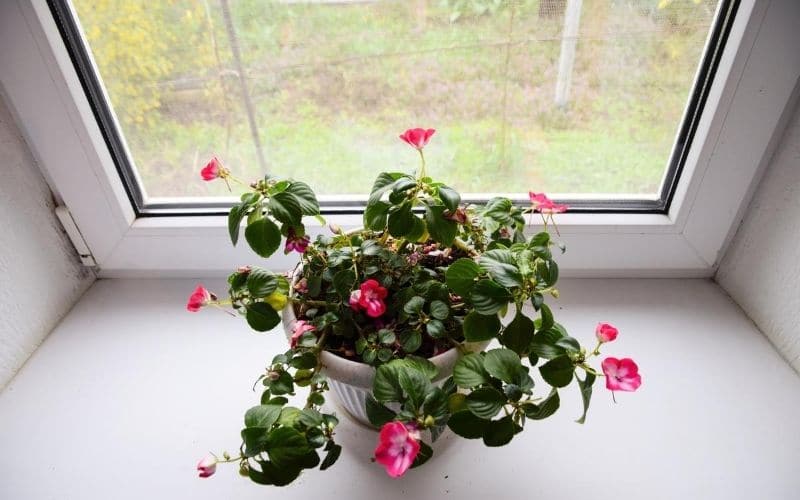Everyone likes flowers, it’s hard to argue with that. A study by psychologists from the University of New Jersey has shown that the presence of flowers in our lives can significantly improve our mental and emotional health. It doesn’t matter if it is a bouquet received as a gift, potted plants placed on the window sill, or a flower bed in the garden, they will still have a positive effect on us. This property of flowers was noticed by people in ancient times. There was even a method of treatment when the patients were showered with flowers. It was believed that this would help them recover faster.
How to decorate your home, what to give to loved ones to please them and how can flowers improve the quality of our lives? Let’s figure it out.
How do houseplants affect humans?
Most people in Australia have at least a few indoor flowers in flowerpots at home. The point is not only in the aesthetic aspect. Houseplants are also practical and beneficial.
For some, caring for plants becomes a hobby that allows them to relax and unwind from problems and daily routine. Others grow them to make the room cosier and more comfortable. Still, others seek to improve the microclimate of their space.
Why you should grow flowers at home?
The presence of indoor plants has a beneficial effect on the air quality in the apartment. Modern houses are filled with things made of synthetic materials and plastic, chipboard furniture. They release chemicals into the air that are harmful to our health. Flowers have the ability to absorb these dangerous particles, purify the air and saturate it with oxygen. That is why growing them in a modern metropolis is not only desirable but necessary.
Can indoor flowers improve health?
Many plants have a healing effect on the body. We are not talking about medicinal plants, from which all kinds of decoctions and infusions are prepared, but about the usual flowers in pots that are well known not only to people who live near forests or jungle but for people who live in Sydney or Melbourne.
Geranium is good for the bedroom, as its scent helps to cope with stress and insomnia. It also has a disinfecting effect and helps to quickly cope with colds and sore throats. Lemon activates thought processes and improves cerebral circulation. The well-known monstera promotes proper digestion.
Aloe Vera (Aloe barberae), also known as the desert lily, is an immortal medicinal plant. It really has an effect on the human body and has many useful properties, including purifying the air.
About 10% of the air we breathe is humidified by plants. Ficuses, ferns, indoor varieties of palms can serve as excellent air purifiers. Cactuses are known for their ability to absorb ionising radiation, which is why they are often placed near computers and televisions. Chlorophytum destroys bacteria and disinfects the air. Flowers also help maintain optimal humidity in the room, which is especially important in winter, when heating can cause the air to become dry.
A pleasant smell
The influence of indoor plants on humans is not limited to the fact that they are important for health. The benefit of indoor plants is that they can create a positive atmosphere. For example, to fill your home with a refreshing aroma, you do not have to use household chemicals. It’s better to start growing plants with a pleasant smell — for example, Kaffir lime (Citrus hystrix). This chemical-free houseplant will not only help freshen up your home but is also indispensable in the kitchen.
Plants can become real psychotherapists for us. Violet helps to cope with violent emotions and prevent a nervous breakdown. Dracaena relieves a depressive mood. Begonia reduces the level of aggression, reduces the likelihood of conflicts.
How does the smell of a bouquet affect us?
It has long been proven that the smells affect not only our mood but also the physical state of the body. A whole direction in medicine is devoted to this property – aromatherapy. Phytoncides, which secrete some plants, are able to cleanse the air of pathogenic bacteria, and a number of odours can improve the work of individual systems and the whole organism as a whole.
Which flower to choose:
Chamomile — its aroma has a positive effect on the state of the nervous system, soothes, helps to fight insomnia, normalises blood pressure.
.
Rose — creates an atmosphere of tranquillity in the room, relieves dizziness and headaches, promotes the development of creative abilities.
.
Tulips — their smell improves mood, increases vitality.
.

.
Peonies — improve sleep, reduce anxiety.
Orchids — refreshing and invigorating.
Mint- relieves fatigue and stress.
Irises — their scent is called love, it is believed that the smell of irises has a beneficial effect on the relationship of the couple.
Does the colour of the bouquet affect the mood?
It turns out that not only the smell can change the psychological state. The predominant colour in the composition also matters. It has been noticed that red bouquets have strong energy. They stimulate the release of hormones, improve physical activity and overall tone. So red roses are able to provide us with a charge of vigour for the whole day.
Yellow flowers strengthen immunity, improve psychological mood, make us think positively. White ones strengthen the body and mind.
Blue ones refresh and reduce the level of aggression. Green flowers drive away bad moods, calm us down, and help to concentrate.
So, what are you waiting for? Order yourself or someone you care for a big bouquet of joy and happiness.
Conclusion
Flowers bring joy and harmony into our lives, make us abandon sad thoughts. A bouquet presented to a loved one turns an ordinary day into a holiday filled with happiness. Indoor plants fill the house with warmth and comfort. Surround yourself with flowers, and you will notice that everything around you began to change for the better.
Patrick Adams is a freelance writer and rock-blues fan. When he is not writing about home improvement, he loves to play chess, watch basketball, and play his guitar. More than anything, he loves to spend his time in his garage, repairing appliances and creating stuff from wood.















